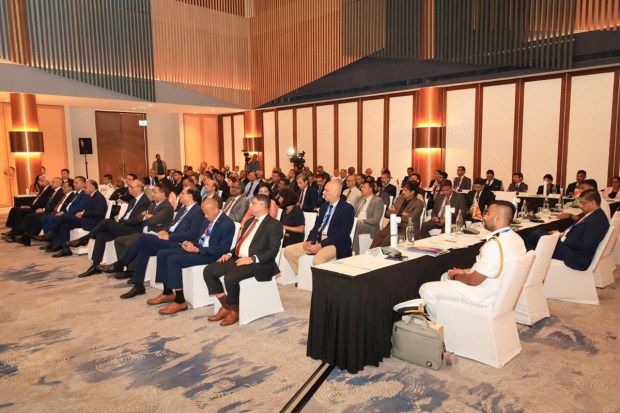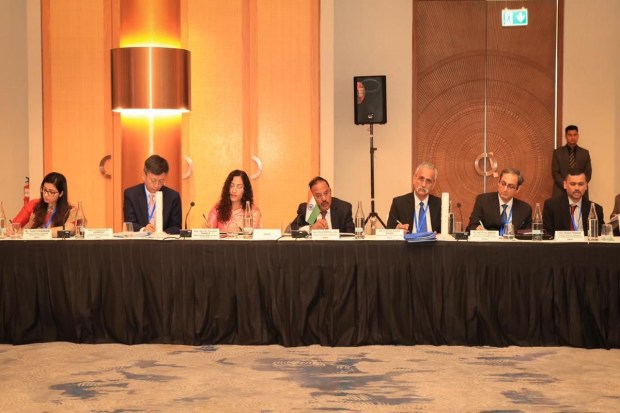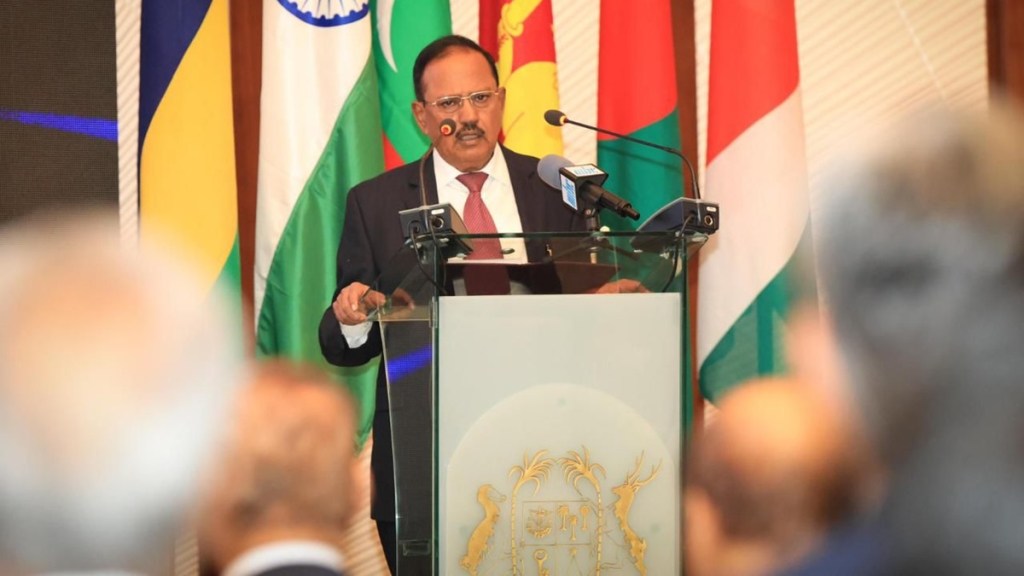The Colombo Security Conclave, an alliance comprising India, Sri Lanka, Mauritius, and the Maldives, has formulated a comprehensive roadmap aimed at ensuring the security and stability of the Indian Ocean region. The sixth meeting, held in Port Louis, Mauritius on Thursday (Dec 7, 2023), witnessed the participation of National Security Adviser Ajit Doval, representing India, alongside counterparts from Sri Lanka, the Maldives, and Mauritius. Additionally, senior officials from Bangladesh and Seychelles were present, marking a collective effort to address evolving security challenges.
During the meeting, member states took stock of the progress made since the previous conclave, specifically reviewing the decisions implemented after the fifth meeting. The outcome was the unanimous agreement on a roadmap outlining strategic activities for the year 2024. Sources familiar with the matter, speaking on condition of anonymity, highlighted the commitment to tackling traditional, non-traditional, and emerging hybrid challenges in the Indian Ocean.
Throughout the preceding year, the conclave’s members and observer states engaged in a multitude of activities, showcasing a broad spectrum of collaborative efforts. These initiatives encompassed the investigation of terrorism cases, countering narcotics trafficking, addressing cyber-crime, and collaborative efforts on diverse topics such as marine pollution, maritime law, coastal security, oceanography, hydrography, and cyber-security.
Established in 2020, the Colombo Security Conclave evolved from trilateral maritime cooperation meetings between India, Sri Lanka, and the Maldives. The inclusion of Mauritius during the fifth meeting in March 2022 underscored the commitment to expanding the collaborative framework and strengthening regional ties.

The conclave’s cooperation framework is organized around five pillars, each addressing critical aspects of regional security: maritime safety and security, countering terrorism and radicalization, combating trafficking and transnational organized crime, cyber-security and protection of critical infrastructure, and humanitarian assistance and disaster relief.
Observer states, notably Bangladesh and Seychelles, play an active and integral role in the conclave’s discussions and decision-making processes. Their participation reflects the collective commitment to addressing security concerns in the Indian Ocean region.
The maritime security pillar witnessed a landmark event with the inaugural Oceanographers and Hydrographers Conference hosted in India in November 2022. Senior scientists from member and observer states collaborated to define a substantive list of deliverables. These included the establishment of institutional linkages, joint expeditions, scientific research initiatives, collaboration in environmental impact assessments related to maritime incidents, and the sharing of oceanographic information.
Building on the success of the conference, a significant follow-up initiative was announced during the recent meeting in Mauritius—the launch of the Ocean Information Services portal. This portal aims to facilitate the exchange of crucial oceanographic information and foster ongoing collaboration. Anticipating the importance of such initiatives, plans are already in motion for the second oceanographers and hydrographers conference scheduled for early 2024.

In tandem with maritime security efforts, the Coastal Security Conference, inaugurated in Chennai in December 2022, emerged as a platform for the heads of Coast Guards and senior leadership from member and observer states. The conference provided a forum to discuss and address threats to coastlines, emphasizing cooperation through information sharing. Plans are underway for the next edition of the Coastal Security Conference, expected to convene in the last quarter of 2024.
The collaborative efforts extend beyond conferences and discussions. In the realm of training and capacity building, police officers, counter-terrorism experts, drug and law enforcement officers, and cyber-security experts have been engaging in regular exchanges. Joint working groups focusing on countering terrorism and radicalization, cyber-security, combating trafficking and transnational organized crime, and humanitarian assistance and disaster relief have been established to deepen cooperation in these specific priority areas.
Deputy NSAs play a pivotal role in overseeing the implementation of decisions and directions from NSAs. The next edition of the meeting of NSAs is scheduled to be held in India in 2024, providing an opportunity to reassess progress and chart the course for future collaborative endeavors.
A notable aspect of Ajit Doval’s visit to Mauritius was his meeting with Prime Minister Pravind Kumar Jugnauth. This diplomatic engagement underscores the importance of high-level interactions in fortifying bilateral ties and fostering mutual understanding.
The Colombo Security Conclave stands as a beacon of regional cooperation, exemplifying the commitment of member states and observer states to address complex security challenges in the Indian Ocean region. The collaborative framework, encompassing a range of pillars and initiatives, demonstrates a comprehensive approach aimed at ensuring the safety, security, and stability of one of the world’s vital maritime regions.


